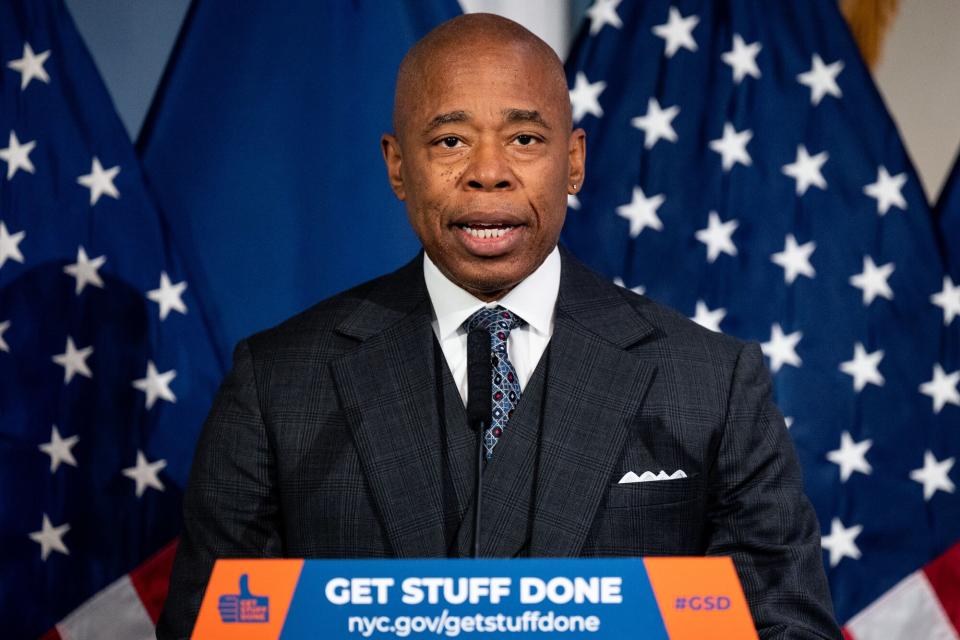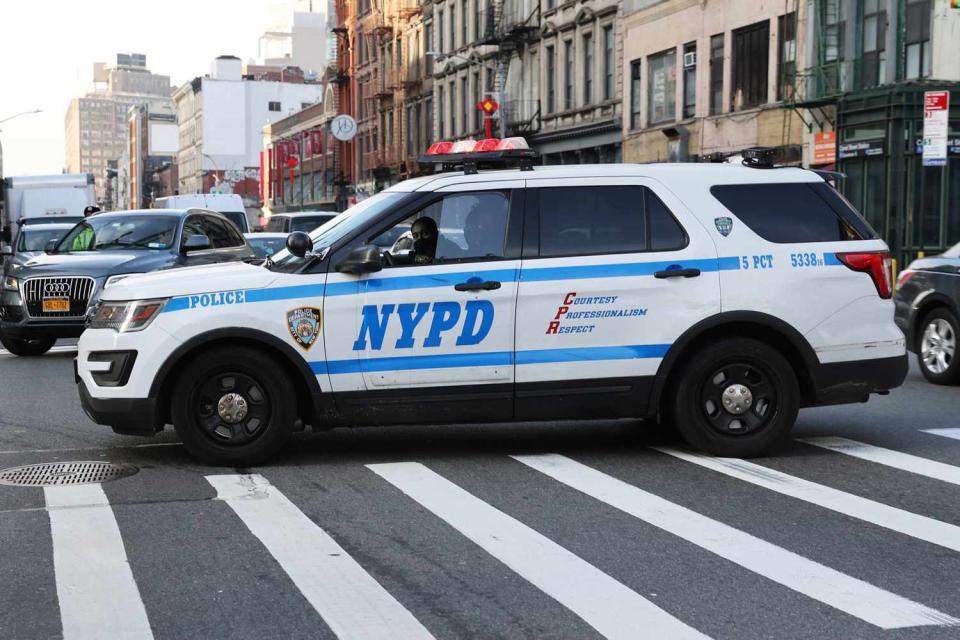NYC Plans to Hospitalize Homeless Who Appear to Be Mentally Ill — What to Know

Lev Radin/Pacific Press/Shutterstock Mayor Adams
New York City Mayor Eric Adams hopes to combat crime by removing people with severe mental illness from the streets and subways, noting that the City has a "moral obligation" to help.
"The common misunderstanding persists that we cannot provide involuntary assistance unless the person is violent," Adams said during a 19-minute address at City Hall on Tuesday. "This myth must be put to rest. Going forward, we will make every effort to assist those who are suffering from mental illness and whose illness is endangering them by preventing them from meeting their basic human needs."
"No more walking by or looking away," he added.
The Reason Behind the Policy Change
Since the pandemic began, there has been an increase in random attacks on the streets and subways of New York City, the New York Times reported in June.
In one subway attack in January, a woman was pushed to her death by a man with schizophrenia, who had been in and out of the city's hospitals, jails, and streets. The culprit, Martial Simon, became emblematic of a system that needed to be fixed.
RELATED: Homeless Man Charged with Murder for Allegedly Shoving Woman in Front of N.Y.C. Subway Train

Michael Brochstein/SOPA Images/Shutterstock New York City Mayor Eric Adams
A Shortage of Psychiatric Beds
Hospital administrators in New York City say there are not enough psychiatric beds to fulfill the need, according to The New York Times, which also reported that Gov. Kathy Hochul has promised 50 additional beds.
"We are going to find a bed for everyone," Adams said Tuesday, adding that the city would order hospitals to care for patients until they are stable, and discharge them only when there is a workable plan in place to connect them to ongoing care.
However, advocates for the homeless worry there will not be enough resources.
While the city said training would begin immediately for police officers, Emergency Medical Services and other medical personnel to ensure "compassionate care," Adams acknowledged that real change will take time.
"Nobody should think decades of dysfunction can be changed overnight," Adams said about the estimated 3,439 homeless people living on the streets and subways of New York.
"The man standing all day on the street across from the building he was evicted from 25 years ago waiting to be let in; the shadow boxer on the street corner in Midtown, mumbling to himself as he jabs at an invisible adversary; the unresponsive man unable to get off the train at the end of the line without assistance from our mobile crisis team: These New Yorkers and hundreds of others like them are in urgent need of treatment and often refuse it when offered," the mayor said.

Getty New York City
The Issue of Consent
The plan was met with pushback from various groups. City Councilwoman Tiffany Cabán said on Twitter on Tuesday that the mayor's plan was "deeply problematic" and that consent was crucial.
"Often the wrong responder and response is what creates a deadly situation, not the mental health crisis itself," she posted.
Democratic City Council Member Diana Ayala, who chairs the General Welfare Committee, and whose brother suffers from mental health issues, told Politico, "Who's determining that they're dangerous to anybody but themselves? I don't know that picking folks up and dragging them to the ER is even legal."

Spencer Platt/Getty NYPD
RELATED: Kate Middleton Champions Early Childhood Development for 'Healthier and Happier Society' in Op-Ed
The feedback wasn't all negative, however. "There are ticking time bombs — who are a threat to themselves or others — riding our subways and walking our streets," Council Member Bob Holden, a conservative Democrat representing Queens, said in a statement.
"Serious mental illness, if left untreated, will only get worse," he added. "Let's get these New Yorkers the help they desperately need and deserve and make our streets and subways safer for all."
New York isn't the first city to take strict measures to deal with mental health. California Gov. Gavin Newsom recently signed a law that could force homeless people with severe mental illness to be committed to hospitals.
Washington State, along with other states, also allows those who are considered to be a danger to themselves or others to be forced into treatment.

 Yahoo Finance
Yahoo Finance 